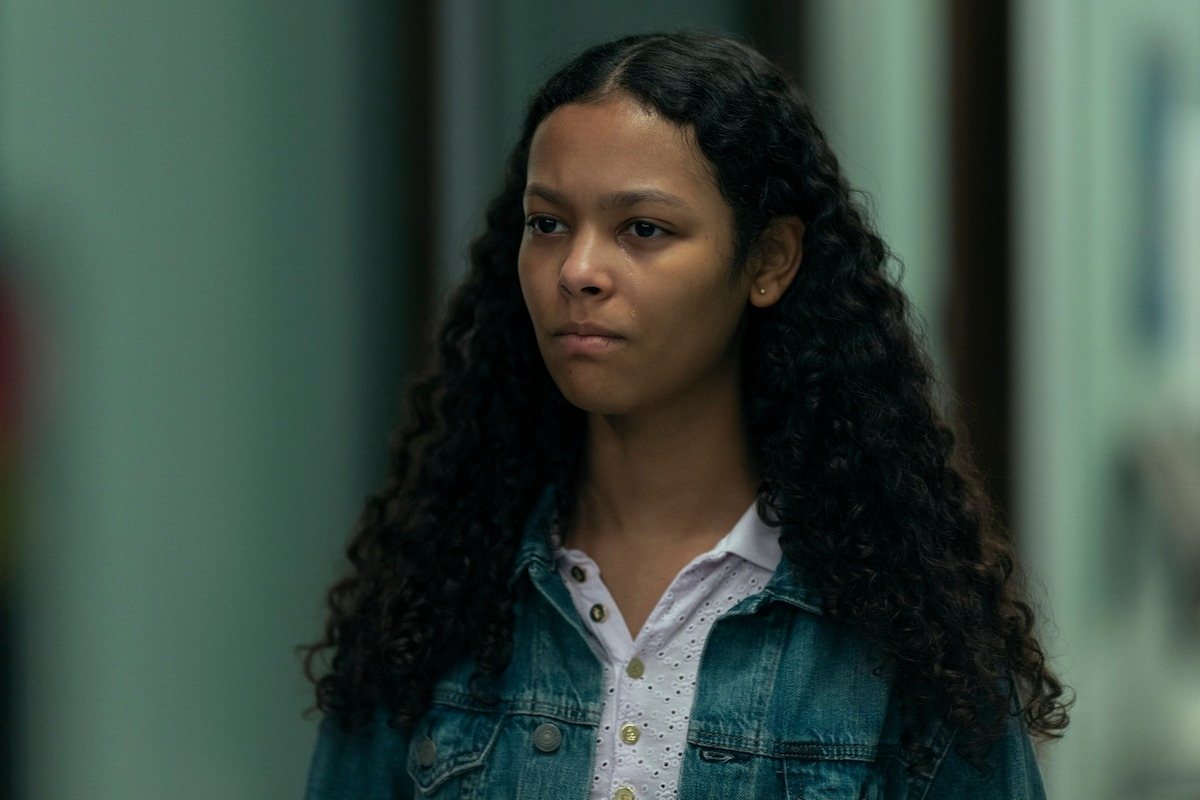Mike Flanagan is livid. Suppose Midnight Mass was a moving and emotional trek through Flangan’s religious upbringing. In that case, The Fall of the House of Usher is an unleashed tidal wave of anger directed at corporate greed. If you look even closer, there seems to be a symbolic “fuck you” directed squarely at Netflix on his way out the door.
Starring Bruce Greenwood as Roderick Usher and Mary McDonnell as his sister and business partner, Madeline Usher, The Fall of the House of Usher is a modern interpretation of Edgar Allan Poe’s original text. The Usher family owns a large pharmaceutical company responsible for the opioid crisis—a thinly veiled reference to the Sackler family and their drug, oxycodone. One by one, each member of the Usher family begins to die off in mysterious circumstances that seem to be related to Carla Gugino’s Verna, a mystic entity of moral justice.
Flanagan’s reimagining of the text recontextualizes our modern world, specifically corporate greed and the tangible violence left in its wake. As Roderick and Madeline Usher build their empire, bodies fall around them in careless piles. Flanagan’s vision for the Usher family is unabashedly brutal. It’s the kind of moral bite missing from Succession and last year’s Palme d’Or winner Triangle of Sadness, in which the critiques of greed felt shallow. Perhaps that was the point with both of these projects. The weight of their actions far outweighs the moral consequences any of these characters endure in the end.
With Usher, Flanagan delivers a genuine and gut-wrenching deconstruction of the societal veneer that destroys the lives of many. Making a deal with the devil comes with the caveat that it’s unbreakable. No matter what the Usher siblings tell themselves, karma has come for them as their family members are killed off one by one—a fate of their own making. Verna offers Roderick and Madeline the deal of a lifetime: They can spend the next 50 years enjoying a life of riches and their family line dies with them, or endure years of financial struggles but their lives will be filled with love for generations to come. Not looking to the future but blinded by their greed for the present, the Usher siblings choose the gilded life with the promise of everything they’ve wanted. They don’t realize how brutal the end of their story will ultimately be.
Each death in the Usher family is more violent than the last. From death by an acid shower to being impaled by sharp mirror fragments, the Usher family does not die a peaceful death. As horrible as their deaths are, it isn’t that aspect of Verna’s contract that makes The Fall of the House of Usher a more radical solution to generational wealth and corruption. The cycle ends with the youngest of the Usher legacy: Lenore (Kyliegh Curran). The only granddaughter of Roderick Usher and the sole moral compass of the Usher family must also die. That’s the deal. After saving her mother from the jealous rage of her father, Frederick, Lenore still has to die. The Usher line has to end. So, with a gentle swipe of her fingers over Lenore’s face, Verna kills off the last remaining line of the Usher family—but not before letting Lenore know that her actions now, defying her father and their violent family inheritance, will save millions of people in the future.
Yes, it’s tragic. No one wants to see a kid die. Especially someone like Lenore, whose kind nature shines bright amongst the rotted souls of her family, and who Roderick considers his human credential. Barely a teenager, Lenore’s heart of gold is compared to that of her equally gentle and kind grandmother, Annabel Lee (Katie Parker). The same woman Roderick left to chase ambition, sacrificing pieces of his humanity along the way. Verna notes how much she hates this part of her job. The one where she knows collateral damage is needed when previous generations make checks their children and grandchildren can’t cash. But it’s Flanagan’s best narrative choice in the context of what the Usher family represents. To effectively humanize the Usher family, Flanagan knew he needed to make the punishment feel just as emotionally weighted as the crime. There was no other choice. Lenore had to die.
(featured image: Netflix)










Published: Oct 18, 2023 03:42 pm